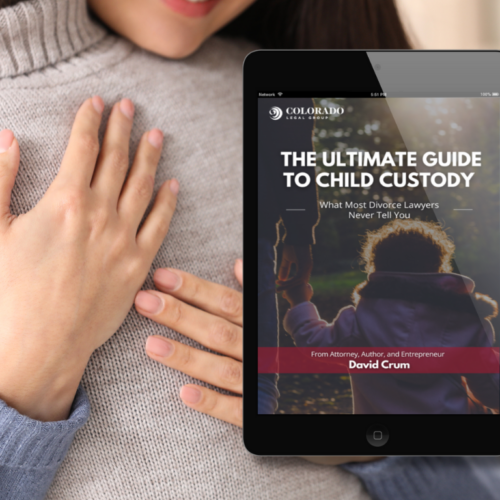What Is Allocation of Parental Responsibilities?
An Allocation of Parental Responsibilities (APR) case establishes custody (parenting time and decision-making) as well as child support for minor children. Unlike a dissolution that establishes parents’ rights for those parents who are married, parents who are not married can use an Allocation of Parental Responsibility case to establish custody.
The APR process is important for ensuring that both parents and non-parents can secure legal rights and responsibilities regarding the custody, care, and upbringing of minor children. This process involves the court making determinations on two main aspects: parenting time (physical custody) and decision-making authority (legal custody). Parenting time refers to the schedule that outlines when the child will be with each parent, while decision-making authority pertains to which parent has the right to make significant decisions about the child’s life, such as education, healthcare, and religious upbringing.
For unmarried parents, an APR case provides a structured and legal framework to establish their parenting rights and responsibilities. This is essential for ensuring that both parents have a defined role in their child’s life and that the child’s best interests are prioritized. It also helps in setting clear expectations and reducing conflicts between parents by having a court-ordered arrangement.
Moreover, a non-parent (such as a grandparent, aunt/uncle, or close friend) can use an APR to affirm parenting time and decision-making for a minor child who is in their custody and control. This is particularly important for non-parents who have taken on the role of primary caregiver. Through an APR, non-parents can secure legal recognition of their caregiving role and gain the authority to make critical decisions for the child’s welfare. This includes the ability to make medical decisions, enroll the child in school, and protect themselves against claims for parental rights from others.
The Importance of Allocation of Parental Responsibilities Cases in Colorado
The importance of APR cases extends beyond immediate caregiving concerns. For non-parents, having legal custody can provide stability and security for the child, ensuring that their everyday needs are met without interruption or legal disputes. It also protects the non-parent caregiver from potential legal challenges by biological parents or other parties who may seek to assert their rights over the child.
In Colorado, the court’s primary focus in APR cases is the best interests of the child. This means that the court will consider various factors, including the child’s relationship with each caregiver, the ability of each caregiver to provide for the child’s needs, and the child’s own wishes, depending on their age and maturity. The court aims to create an arrangement that supports the child’s emotional, physical, and developmental needs.
Bases Under Which a Non-Biological Parent May Seek Custody
In most cases, when a non-biological parent has minor children in his or her physical custody for at least six months, that person can start an Allocation of Parental Responsibilities (APR) case. A non-biological parent can also begin an APR case as long as the children are not in the physical care of the biological parent(s). This legal pathway is essential for those who have taken on a parental role and seek to formalize their legal responsibilities and rights regarding the child’s upbringing.
Criteria for Non-Biological Parents to Seek Custody
Duration of Physical Custody:
Non-biological parents who have had the children in their physical custody for a continuous period of at least six months are eligible to file for an Allocation of Parental Responsibilities. This criterion acknowledges the significant caregiving role played by non-biological parents and seeks to maintain stability for the child by legally recognizing the current custodial arrangement.
Absence of Biological Parents:
If the biological parents are not actively involved in the day-to-day care of the children, a non-biological parent can file for an APR. This situation often arises in cases where biological parents are unable to care for the child due to various reasons such as substance abuse, incarceration, mental health issues, or abandonment. The law allows non-biological parents to step in and provide the necessary stability and care for the child.
Best Interests of the Child:
The primary consideration in any custody case is the best interests of the child. Non-biological parents must demonstrate that their involvement and custody would serve the child’s best interests. Factors considered include the emotional bonds between the child and the non-biological parent, the non-biological parent’s ability to provide a stable and nurturing environment, and the child’s adjustment to their current living situation.
Legal Support for Non-Biological Parents
Colorado Legal Group provides comprehensive legal support for non-biological parents seeking custody. Our experienced attorneys can help you navigate the complexities of APR cases, ensuring that all legal requirements are met and that your case is presented effectively to the court. We understand the challenges faced by non-biological parents and are dedicated to helping you secure the legal recognition and authority needed to care for the child.
Additional Considerations in APR Cases
Emergency Situations
In urgent cases where the child’s safety is at risk, a non-biological parent can seek temporary custody through emergency orders. This provides immediate protection for the child while the longer-term APR process is underway.
Legal Documentation
Proper documentation is crucial when filing for an APR. This includes proof of the duration of physical custody, evidence of the biological parents’ lack of involvement, and any other relevant information that supports the best interests of the child.
Hiring a Colorado Child Custody Attorney
Even with these bases in mind, it’s crucial to know that as a non-biological parent, you will be facing a steep uphill battle. If you deeply worry about the well-being and best interests of the child and believe the child is even subjected to criminal activity or severe neglect, consult with one of our attorneys to strategize the best course of action and get an idea of which outcomes are realistic.



